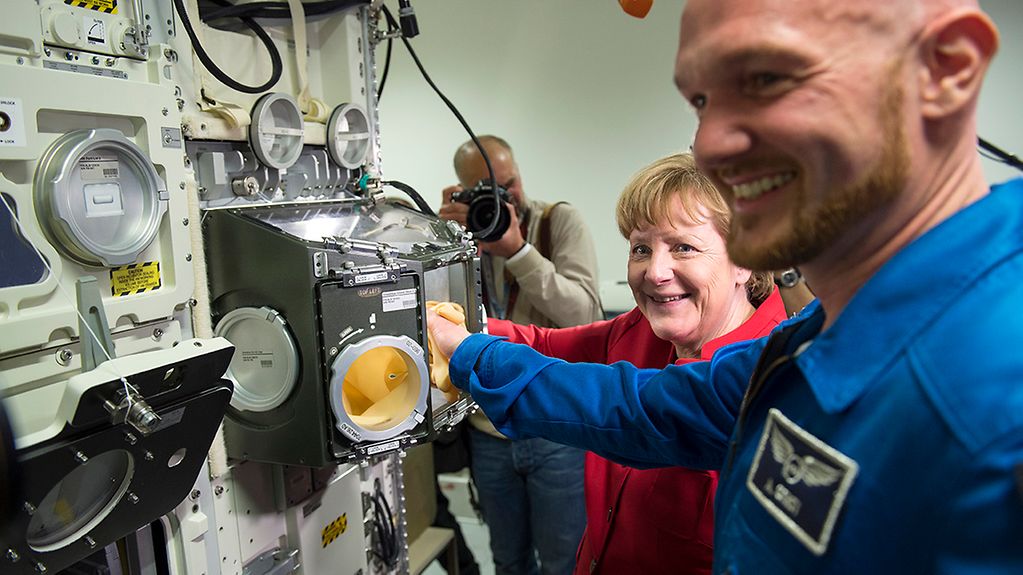Angela Merkel meets Astronaut Alexander Gerst
Astronaut Alexander Gerst is to return to space in 2018, where he will be the first German Commander of the International Space Station (ISS). The European Space Agency (ESA) made the announcement during the Chancellor’s visit to the European Astronaut Centre in Cologne.
2 min reading time

Astronaut Alexander Gerst explains an ESA training model to the Chancellor
Photo: Bundesregierung/Bergmann
Angela Merkel offered her congratulations and praised Alexander Gerst as a "true ambassador from outer space".
Alexander Gerst will be the first German astronaut to take command of the International Space Station (ISS), announced the European Space Agency (ESA) during Chancellor Angela Merkel’s visit to their Cologne centre. This will be the 40-year-old astronaut’s second long-term space mission. In 2014 he was at the International Space Station from May to November.
During her visit to the European Space Agency and the DLR, the national aeronautics and space research centre of the Federal Republic of Germany, in Cologne, the Chancellor stressed the importance of international space missions. "In spite of all the political conflicts we must overcome, we can say that space travel brings us together – not only at a European level. It brings together very many countries of our world."
The fascination of space
Angela Merkel believes that international space research generates a large number of benefits for everyday life. "Manned space travel gives us the opportunity to undertake experiments under different conditions, in zero gravity, across the entire spectrum from technical alloys to medical experiments and many other things."
In this context she also pointed to environmental and climate monitoring and materials research. "It is not always apparent how much hard work goes into it, and what Germany’s contribution is to international space research," said the Chancellor.
Looking over the scientists’ shoulders
Space research enjoys a high priority within the High-Tech Strategy of the German government. "Germany is second only to France in terms of leading European space nations, and we are very proud of that," said Angela Merkel. She praised the DLR, Germany’s national aeronautics and space research centre, as "home of excellent German science and engineering".
During her tour the Chancellor found out more about the European Rosetta Mission, the first to rendezvous with a comet. At the DLR space laboratory she met school students and discussed their research projects, while at the European Astronaut Centre she talked to German astronaut Alexander Gerst about his experiments at the International Space Station.
The DLR, the national aeronautics and space research centre, is responsible for planning and implementing Germany’s space activities and cooperating with the European Space Agency on behalf of the German government. The German government provides a sum of over one billion euros a year for research in the aerospace sector. It aims to expand Germany’s leading position in space research and technology, and to improve the ability of German companies to hold their own against competitors on the European and global markets.